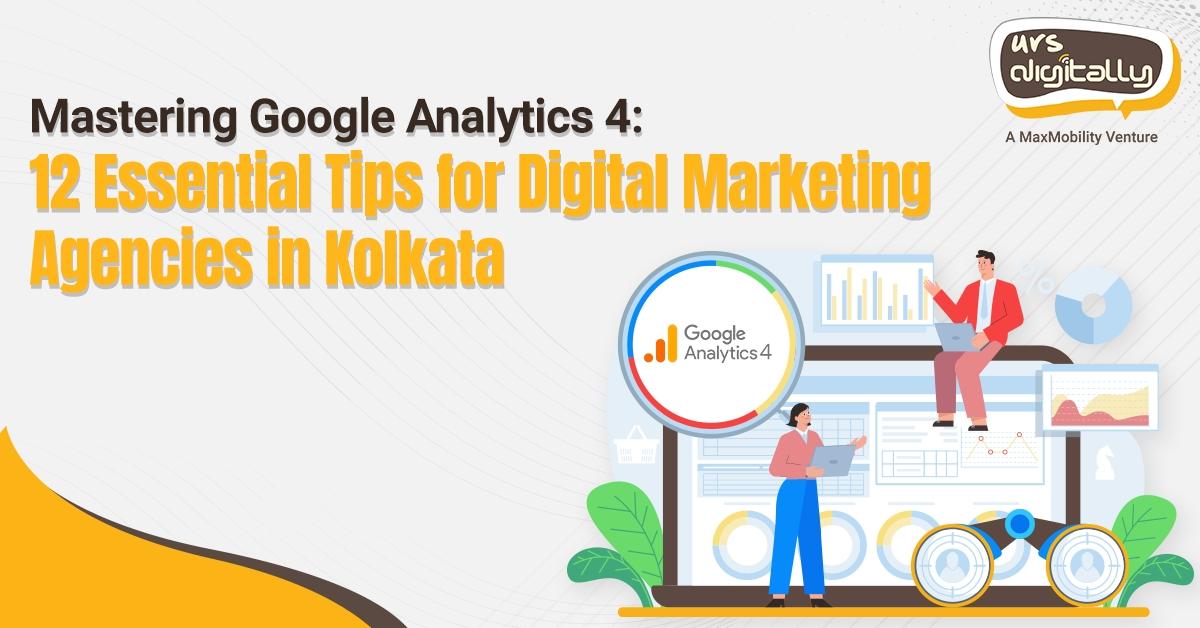The dynamic world of digital marketing always keeps the digital marketing agencies in Kolkata and the audience on tenterhooks by introducing disruptive trends and updates. A similar announcement was rolled out by Google in mid-October 2020 about GA 4 (Google Analytics 4) soon to replace Universal Analytics, which officially came into play on July 1, 2023. To ensure a smooth transition of data and analytics reports from UA, Google advised marketers to migrate from UA to GA4 and master the new features for a better experience.
Why migrating to GA 4 is important?
If you are a passionate marketer, who wants to explore and implement the best of digital marketing practices for visible improvements, migrating to GA 4 is a must. GA 4 comes packed with intuitive features and a user-friendly interface that makes data collection, analysis, and report generation more seamless than ever before. The unique feature of this latest version of Google Analytics is, it enables marketers to seamlessly analyze and measure data from both websites and apps.
Must-know GA 4 facts for the digital marketing agencies in Kolkata
While GA 4 is grabbing the limelight with its intuitive features, many marketers are still struggling to make the required shift to GA 4 and derive its utmost potential in transforming everyday marketing ROI-driven. So, here we are decoding some essential tips to master GA 4 enhancements for visible improvements in your revenue graph.
Google Analytics is Free:
One of the most appealing aspects of Google Analytics is that it’s entirely free to use. This robust tool offers a wide range of features and data analysis capabilities without any cost, making it accessible to businesses of all sizes.
Real-Time Data:
Google Analytics provides real-time data, allowing marketers to monitor website traffic, user interactions, and campaign performance as it happens. This feature is invaluable for assessing the immediate impact of marketing efforts.
Track Multiple Websites:
Marketers can manage and analyze data from multiple websites using a single Google Analytics account. This makes it convenient for businesses with multiple online properties to consolidate their analytics efforts.
Goal Tracking:
Setting up and tracking goals in Google Analytics is crucial for measuring the success of your marketing campaigns. You can define specific actions like form submissions, purchases, or page views as goals and track their completion rates.
Conversion Tracking:
Google Analytics offers in-depth conversion tracking, enabling marketers to attribute conversions to specific traffic sources, campaigns, and keywords. This data helps optimize marketing strategies for higher ROI. Migrate now.
Audience Insights:
Google Analytics provides detailed audience insights, including demographics, interests, and behavior data. This information helps marketers tailor content and campaigns to their target audience effectively.
Mobile Analytics:
With the increasing importance of mobile marketing, Google Analytics offers robust mobile tracking features. Marketers can analyze mobile user behavior, optimize mobile sites, and assess the impact of mobile marketing efforts.
E-commerce Tracking:
For e-commerce businesses, Google Analytics offers a dedicated e-commerce tracking feature. This enables tracking of sales, revenue, and product performance, helping marketers make data-driven decisions.
Custom Reports and Dashboards:
Google Analytics allows marketers to create custom reports and dashboards, tailoring data visualization to their specific needs. This feature enhances data accessibility and streamlines reporting.
Behavior Flow Analysis:
Google Analytics Behavior Flow feature visualizes user paths, highlighting where visitors drop off or proceed to other pages. This insight aids in optimizing site structure and content.
Referral Traffic Insights:
Analyzing referral traffic sources can help marketers identify which websites and online platforms are driving traffic to their sites. This information can guide partnership strategies and content promotion efforts.
Integration with Other Tools:
Google Analytics seamlessly integrates with various marketing tools and platforms, such as Google Ads, Google Tag Manager, and email marketing services. This integration streamlines data sharing and enhances overall campaign management.
Conclusion:
Google Analytics4 is a treasure trove of insights for marketers and every digital marketing agency in kolkata. By harnessing its capabilities, you can make informed decisions, refine your marketing strategies, and maximize your online presence. Whether you’re tracking website traffic, analyzing user behavior, or measuring campaign success, Google Analytics4 equips you with the tools and data you need to thrive in the digital marketing landscape. Stay informed, adapt to changes, and leverage these 12 essential facts to drive your marketing efforts to new heights. Keep visiting for your daily dose of digital marketing updates.


